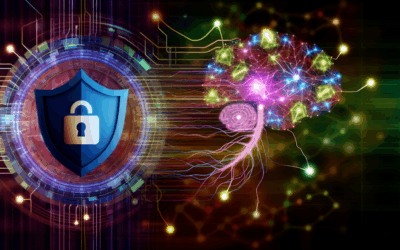The Evolution of AI: A Brief History
The journey of artificial intelligence (AI) began in the mid-20th century, driven by the desire to create machines capable of intelligent behavior. Early pioneers like Alan Turing and John McCarthy laid foundational theories that allowed the field to develop. In the 1950s, the Dartmouth Conference marked a significant milestone, where the term “artificial intelligence” was coined, setting the stage for research and innovation.
Despite early optimism, the road to progress was bumpy, with periods of both excitement, known as “AI summers,” and disappointment, called “AI winters.” Notable advancements in the 1980s led to the development of expert systems that could perform tasks in specific domains. However, it wasn’t until the advent of powerful computing and the availability of big data in the 21st century that AI truly began to flourish, utilizing machine learning and deep learning techniques to achieve unprecedented capabilities. For more on the origins of AI, see the AI Trends – A Brief History of Artificial Intelligence.
Current Trends in AI Technology
As of 2025, the AI landscape is rapidly evolving, with several key trends reshaping the way this technology is implemented across various sectors. One of the most notable trends is the rise of generative AI, which enables machines to create content, from art to text, mirroring human creativity. Companies like OpenAI and Google have made significant advancements in creating models that produce high-quality outputs.
Another trend is the integration of AI with Internet of Things (IoT) devices, enhancing automation and analytics capabilities. This symbiotic relationship allows for smarter homes, cities, and industries, resulting in increased efficiency and productivity. Furthermore, the push for ethical AI emphasizes the necessity of transparently addressing biases and ensuring the responsible use of AI technologies. For further insights, refer to Forbes – Top AI Trends for 2025.
Predictions for the Future: What to Expect by 2030
Looking ahead to 2030, experts predict that AI will become increasingly integrated into our daily lives, influencing everything from healthcare to education. The ability of AI to analyze large datasets will lead to more personalized medicine, improving patient care and outcomes. In education, adaptive learning platforms powered by AI could offer tailored learning experiences to meet individual student needs.
Moreover, the workplace is set to undergo a transformation, with AI and robots collaborating alongside humans, increasing productivity while potentially displacing some jobs. As noted by a report from the McKinsey Global Institute, preparing the workforce for this shift will be crucial in harnessing AI’s potential without exacerbating inequalities. The dialogue around AI’s role will evolve, reflecting both its benefits and challenges.
The Ethical Implications of AI Development
The rapid advancement of artificial intelligence presents complex ethical dilemmas that society must address. Key concerns include privacy violations, algorithmic bias, and accountability in AI systems.
Privacy Concerns: AI technologies often rely on vast amounts of personal data, raising significant privacy issues. The collection and processing of this data can lead to surveillance, unauthorized access, and misuse. Privacy laws are struggling to keep pace with AI developments, with many advocating for stronger regulations, such as the General Data Protection Regulation (GDPR) in Europe. According to an article by Privacy International, individuals must have control over their personal data to prevent these technologies from infringing upon their rights.
Bias in AI: Another major ethical issue is the potential for systemic bias in AI algorithms. If the training data used to develop AI systems contains biases, the resulting applications can perpetuate and even exacerbate these inequalities. For instance, research from MIT Media Lab has shown that facial recognition systems can misidentify individuals from minority backgrounds at significantly higher rates than their white counterparts. This highlights the urgent need for diverse datasets and ethical guidelines in AI development to ensure fair treatment across all demographics [Source: MIT News].
Accountability in AI Systems: Determining accountability in AI decisions is a burgeoning area of concern. When AI systems make errors or cause harm, establishing who is responsible—the developers, the users, or the AI itself—can be challenging. This lack of clarity can lead to a legal and ethical quagmire. As noted by the Brookings Institution, frameworks are needed to delineate responsibility and ensure that individuals and organizations are held accountable for the actions of AI systems.
Addressing these concerns is crucial as AI continues to reshape industries and society. Stakeholders must collaborate to create policies that promote ethical AI development, ensuring technology serves all people without compromising rights or values.
Preparing for an AI-Driven World
As we advance towards an AI-driven world, preparation is essential for both individuals and organizations. Education and continuous learning will play a pivotal role in equipping workers with the skills necessary to thrive alongside AI technologies. This shift will require a rethinking of curriculums to incorporate AI literacy and data analytics, preparing students for a future where these skills are indispensable.
Organizations must also adapt by fostering a culture of innovation and embracing AI not just as a tool but as a driver of strategic decision-making. Leaders are encouraged to invest in training programs that help employees understand AI’s capabilities and limitations. The World Economic Forum emphasizes the need for a collective global approach to navigate the changes brought by AI and ensure inclusivity as these technologies evolve.
Ultimately, a proactive stance towards AI integration across all societal aspects will be key to maximizing its benefits while mitigating risks.
Sources
- Brookings Institution – Accountability in AI: A Young People’s Guide
- Forbes – Top AI Trends for 2025
- MIT News – Facial Recognition Bias
- Privacy International – A Brief on Privacy Rights
- World Economic Forum – The Future of Work in an AI-Driven World
“`



